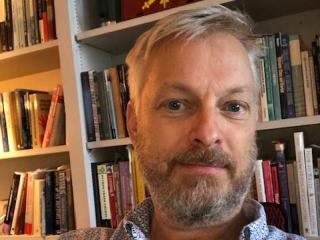 Anders Åslund, Robert D. Atkinson, Scott K.H. Bessent, Lorenzo Bini Smaghi, Josef Braml, Patrick M. Cronin, Mansoor Dailami, John M. Deutch, Mohamed A. El-Erian, Gabriel J. Felbermayr, Gary Clyde Hufbauer, Harold James, Michael C. Kimmage, Gary N. Kleiman, James A. Lewis, Jennifer Lind, Robert A. Manning, Ewald Nowotny, Thomas Oatley, William A. Reinsch, Jeffrey D. Sachs, Daniel Sneider, Atman Trivedi, Edwin M. Truman, Daniel Twining, Nicolas Véron, and Marina v N. Whitman offer views in The International Economy:
Anders Åslund, Robert D. Atkinson, Scott K.H. Bessent, Lorenzo Bini Smaghi, Josef Braml, Patrick M. Cronin, Mansoor Dailami, John M. Deutch, Mohamed A. El-Erian, Gabriel J. Felbermayr, Gary Clyde Hufbauer, Harold James, Michael C. Kimmage, Gary N. Kleiman, James A. Lewis, Jennifer Lind, Robert A. Manning, Ewald Nowotny, Thomas Oatley, William A. Reinsch, Jeffrey D. Sachs, Daniel Sneider, Atman Trivedi, Edwin M. Truman, Daniel Twining, Nicolas Véron, and Marina v N. Whitman offer views in The International Economy:
Thomas Oatley:
Russian President Vladimir Putin’s invasion of Ukraine and the West’s response have fractured global order. Western governments will not be able to piece the system back together. The invasion, as well as the broader foreign policy that produced it, indicate that Putin’s Russia is unwilling to continue as a subordinate member of a Western-led international order.
Debate over the West’s supposed responsibility for triggering the invasion has focused narrowly on the developing relationship between Ukraine and NATO and the extent to which this threatens Russian security. This focus has led analysts to neglect the broader question of how Putin views Russia’s place in the contemporary world order, as well as the extent to which the invasion constitutes an attempt to change this system.
Yet these broader concerns appear to play an important role in the regime’s calculations. Russian Foreign Minister Sergey Lavrov has commented that Russia’s invasion
is “rooted in the U.S. and West’s desire to rule the world,” and reflects a determination by Russia to create “a multipolar, just, democratic world order.”
Regardless of the outcome in Ukraine, therefore, Russia’s dissatisfaction with its subordinate status in the Liberal Order (does one peer tell another that it stands on the “wrong side of history”?) and determination to restructure it will persist. Consequently, Russia will not reintegrate into this order.
More here.
